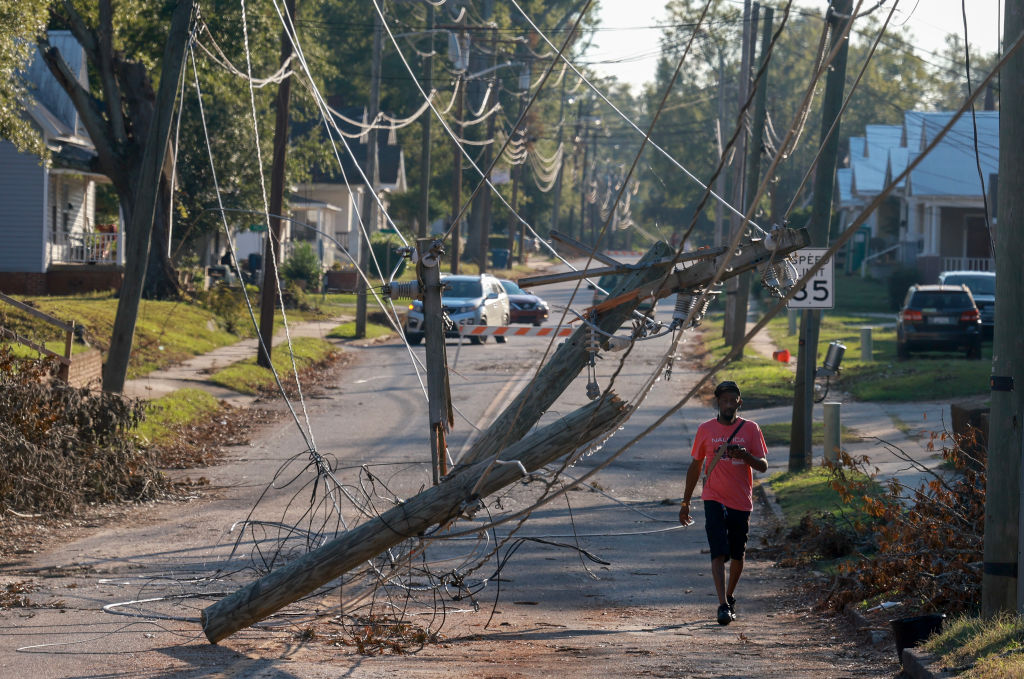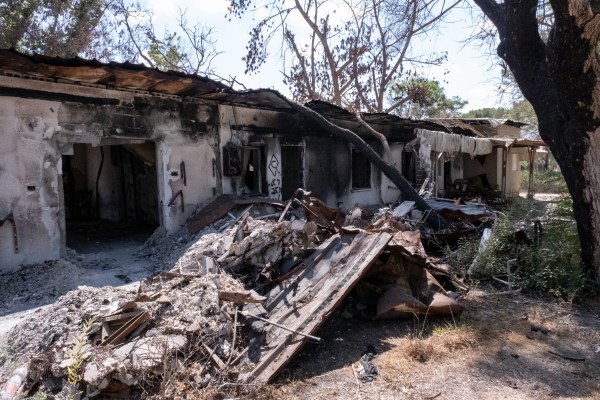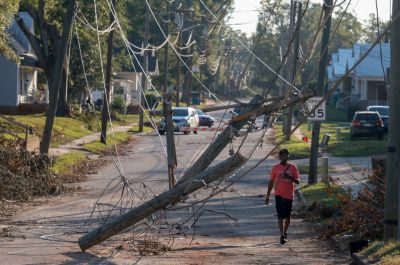Did the Federal Emergency Management Agency (FEMA) spend all of its emergency relief money to house illegal immigrants? Hundreds of viral posts claim that the agency can no longer afford to assist in hurricane recovery efforts because it spent its disaster relief funds elsewhere.
“Hawaii got wiped out, North Carolina got wiped out & there's no money to help them because Kamala Harris gave all the fema money to illegals,” one post says.
“And fema doesn't have any more money because it spent 1.3 billion on immigrants. This could be the October suprise that nobody saw coming,” says another.
Donald Trump amplified the claim himself during an October 3 speech in Michigan. “Kamala spent all her FEMA money, billions of dollars, on housing for illegal migrants, many of whom should not be in our country,” he said. “The Harris-Biden administration says they don’t have any money, they’ve spent it all on—they spent all of their money, they have almost no money—because they spent it all on illegal migrants.”
The claim is false. FEMA does provide nonfederal entities with grant funding to assist noncitizens in the country, but the program’s funding is separate from FEMA’s disaster relief efforts.
FEMA’s Shelter and Services Program (SSP) provides grants for entities including state and local governments, nonprofits, and native tribes to provide services for noncitizen immigrants who have been released from Department of Homeland Security (DHS) custody and are awaiting proceedings in immigration court. These services include the provision of primary services like shelter, food, transportation, and medical care, as well as secondary services including renovations and repairs to facilities, translation services, and administrative costs. The program received $363.8 million of DHS funding in 2023 and $650 million in 2024. Though the SSP is administered by FEMA, the program’s funding actually comes from the budget of Customs and Border Protection (CBP).
FEMA’s disaster relief efforts, including its current response to Helene, are funded through its disaster relief fund. The program received more than $20 billion in fiscal year 2024 from the Further Consolidated Appropriations Act, and an additional $15.5 billion from the Continuing Appropriations Act.
Last week, DHS Secretary Alejandro Mayorkas told reporters that FEMA was meeting immediate hurricane response needs with the funding that it had, but that it would need additional appropriations from Congress to make it through the rest of the hurricane season. “We are expecting another hurricane hitting,” he said. “We do not have the funds. FEMA does not have the funds to make it through the season and what is imminent.” Last month’s continuing resolution further extended funding for FEMA at its current levels, but additional supplemental funding was cut from early drafts of the resolution.
If you have a claim you would like to see us fact check, please send us an email at factcheck@thedispatch.com. If you would like to suggest a correction to this piece or any other Dispatch article, please email corrections@thedispatch.com.






Please note that we at The Dispatch hold ourselves, our work, and our commenters to a higher standard than other places on the internet. We welcome comments that foster genuine debate or discussion—including comments critical of us or our work—but responses that include ad hominem attacks on fellow Dispatch members or are intended to stoke fear and anger may be moderated.
With your membership, you only have the ability to comment on The Morning Dispatch articles. Consider upgrading to join the conversation everywhere.